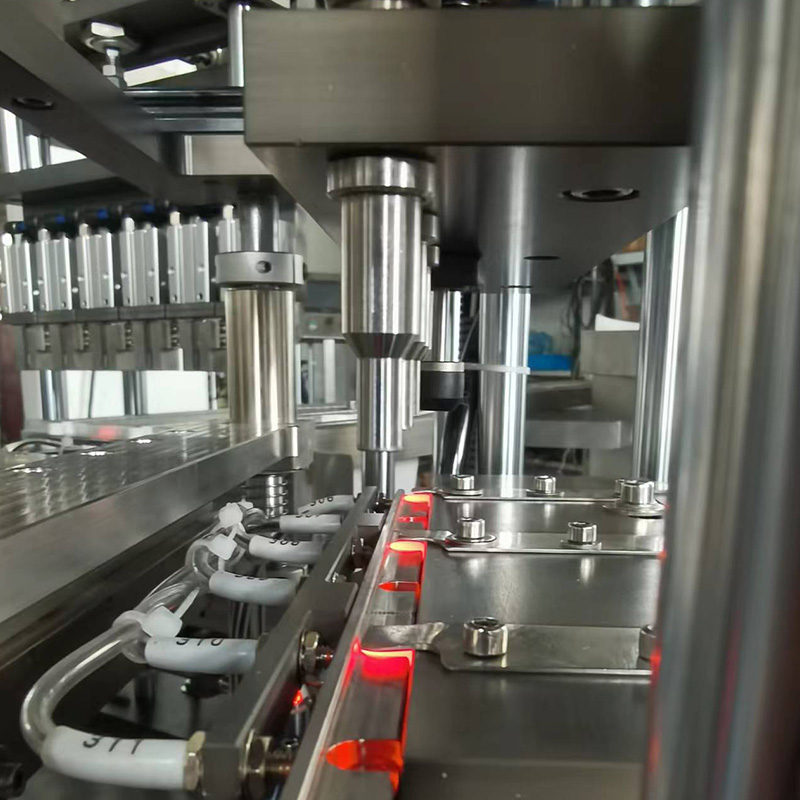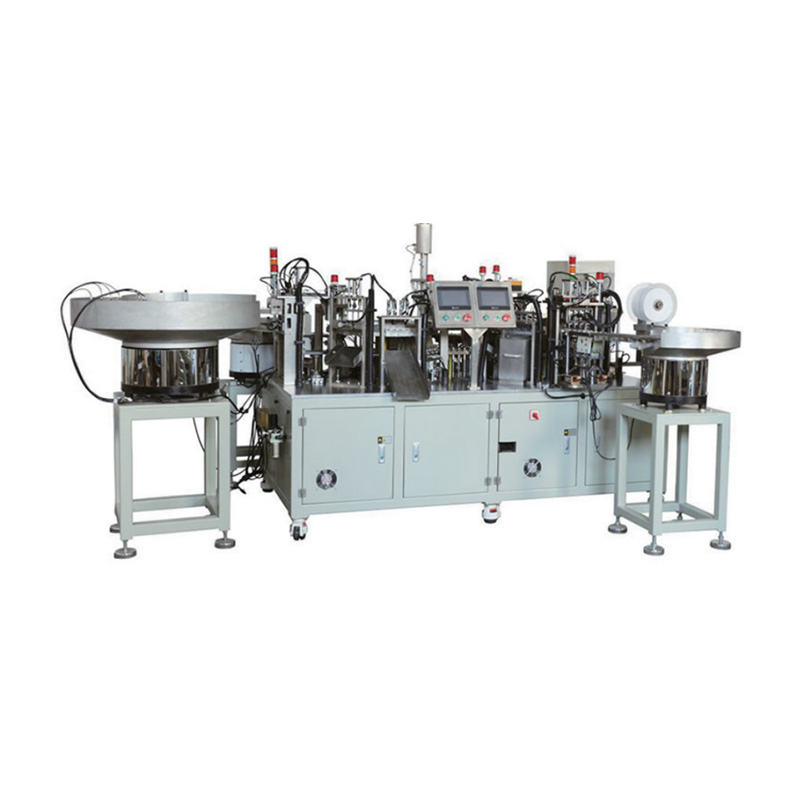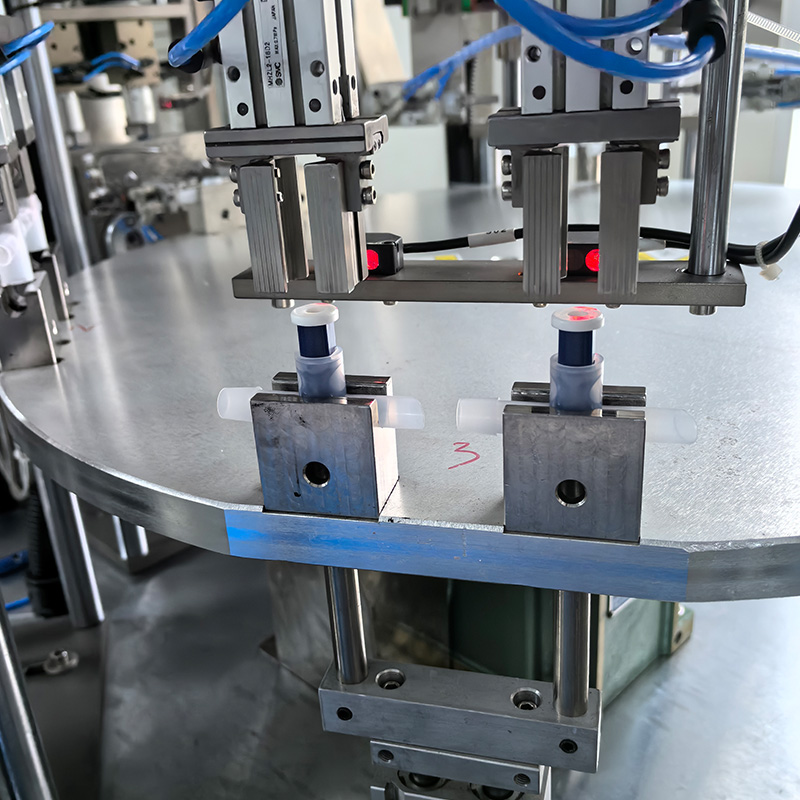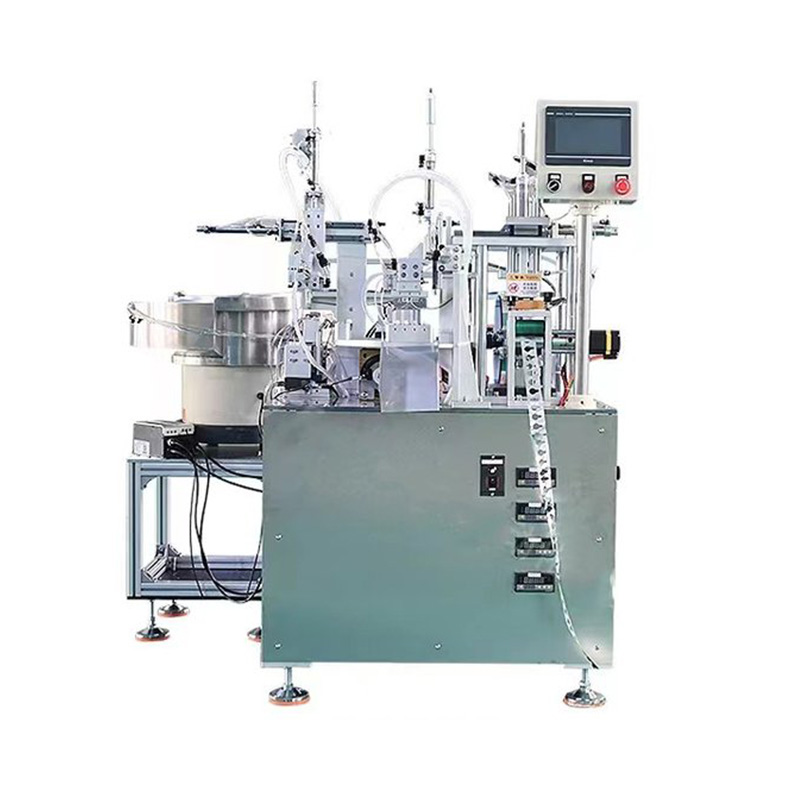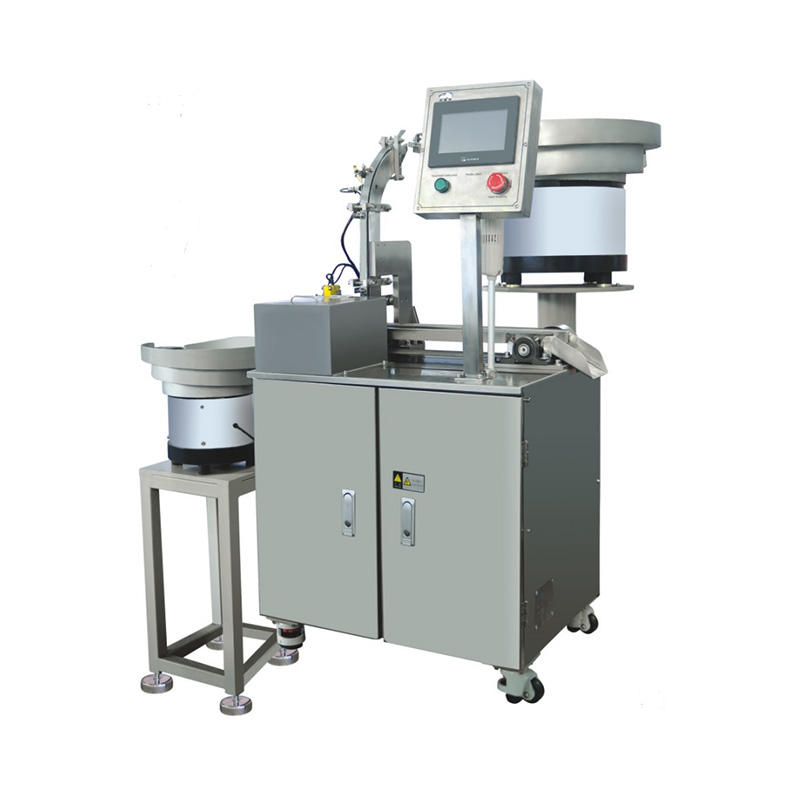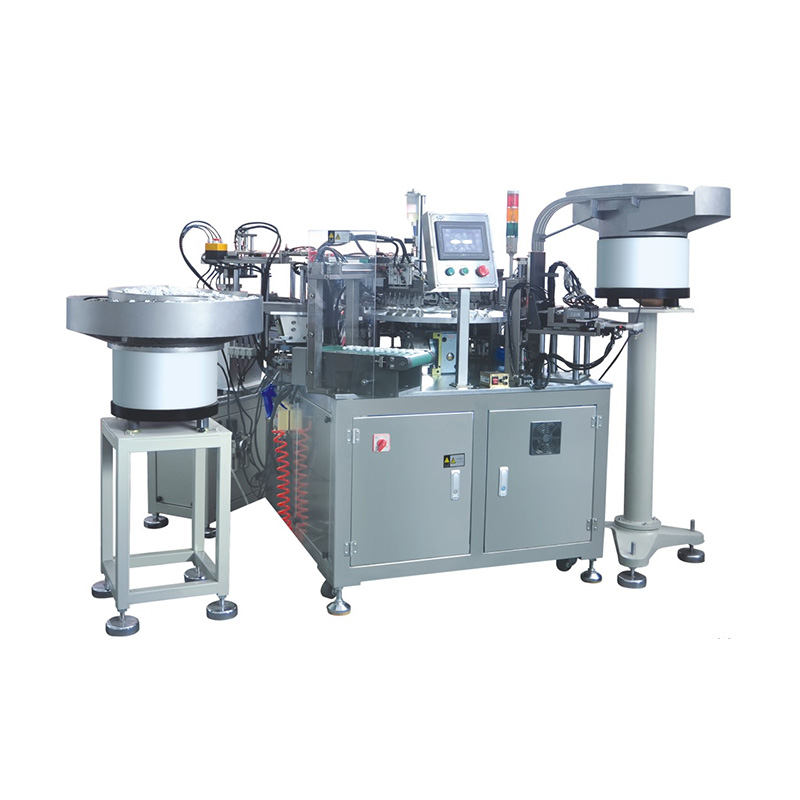China Zhejiang Taizhou Ambe Trading Co., Ltd. is a manufacturer specializing in the production of medical equipment automation equipment.
The relentless demand for injectable therapies—from global vaccination programs to daily insulin administration and cutting-edge biologics—places immense pressure on medical device manufacturers. Scaling production while guaranteeing sterility, precision, and regulatory compliance presents a formidable challenge. For MedTech Solutions Inc., a mid-sized manufacturer supplying prefilled syringes to hospitals and clinics, this pressure reached a critical point. Facing capacity constraints and rising quality control costs, they turned to a transformative solution: implementing a Sterile Syringe Filler Automatic Assembly Machine. This case study examines their journey and the tangible benefits achieved.
MedTech Solutions struggled with their legacy semi-automated lines. Manual syringe handling and filling inconsistencies led to variable fill volumes and an unacceptable scrap rate nearing 5%. Maintaining sterility across multiple manual transfer points was a constant battle, demanding significant environmental monitoring and personnel gowning procedures. Bottlenecks emerged, limiting output to around 8,000 syringes per shift, while labor costs for inspection and manual handling remained stubbornly high. " "We knew we were walking a tightrope," stated Sarah Jenkins, Director of Operations. "Demand was surging, but our existing process couldn't scale safely or cost-effectively. We needed a paradigm shift.""
After rigorous evaluation, MedTech Solutions invested in a fully integrated Sterile Syringe Filler Automatic Assembly Machine designed specifically for high-volume, aseptic processing. The core objective was clear: achieve higher throughput with uncompromised quality and sterility assurance. The chosen Sterile Syringe Filler Automatic Assembly Machine featured several critical advancements:
Closed Aseptic Processing: The entire filling and assembly process occurs within an ISO 5 environment protected by RABS (Restricted Access Barrier System) technology integrated directly into the Sterile Syringe Filler Automatic Assembly Machine, drastically minimizing human intervention and contamination vectors.
Ultra-Precise Filling: Utilizing servo-driven piston pumps, the Sterile Syringe Filler Automatic Assembly Machine achieves fill accuracies of ±0.5% for volumes ranging from 0.5ml to 10ml, crucial for sensitive biologics and potent drugs.
Integrated Inspection: Automated vision systems within the Sterile Syringe Filler Automatic Assembly Machine perform real-time checks for fill volume, particulate matter, stopper placement, and cosmetic defects, rejecting non-conforming units instantly.
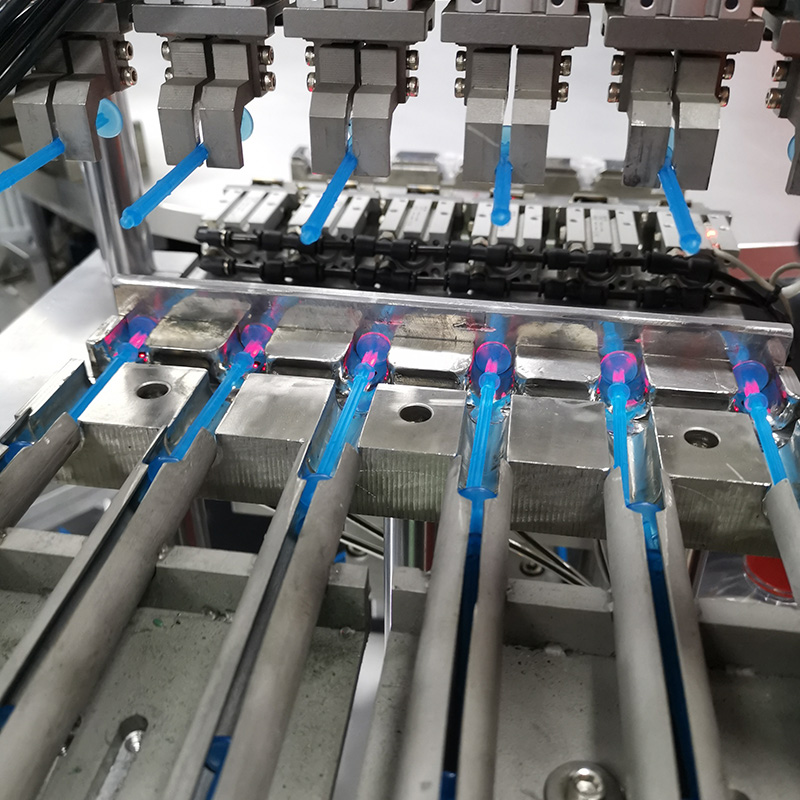
High-Speed Automation: The Sterile Syringe Filler Automatic Assembly Machine automates syringe feeding, filling, stopper insertion, plunger rod assembly, cap placement, and labeling in a single continuous sequence.
Implementation and Results:
The integration of the Sterile Syringe Filler Automatic Assembly Machine required careful planning and validation, adhering strictly to GMP protocols. Post-commissioning, the results were transformative:
Dramatic Throughput Increase: Output soared from 8,000 to over 25,000 syringes per shift—a more than 200% increase. The high-speed capability of the Sterile Syringe Filler Automatic Assembly Machine effectively eliminated previous bottlenecks. "The speed and consistency were immediately apparent," noted Jenkins. "The Sterile Syringe Filler Automatic Assembly Machine runs relentlessly at its designated pace."
Significant Labor Cost Reduction: Automation drastically reduced direct labor requirements on the line. Staff previously engaged in manual filling and handling were redeployed to higher-value tasks like machine oversight, quality assurance, and process optimization. Overall labor costs per unit decreased by approximately 35%.
Plummeting Scrap Rates: The combination of precise filling and integrated automated inspection inherent in the Sterile Syringe Filler Automatic Assembly Machine caused the scrap rate to plummet from nearly 5% to below 0.8%. This represented massive savings in raw materials and finished product waste.
Enhanced Sterility Assurance: The closed environment of the Sterile Syringe Filler Automatic Assembly Machine, coupled with reduced manual handling, significantly lowered the risk of microbial and particulate contamination. Environmental monitoring data showed a marked improvement in particle counts within the critical zone.
Unmatched Product Consistency: The precision engineering of the Sterile Syringe Filler Automatic Assembly Machine ensured fill volume uniformity far exceeding manual capabilities. This directly translates to consistent dosing for patients and enhanced clinical safety. "The product uniformity we achieve now with the Sterile Syringe Filler Automatic Assembly Machine is foundational to our quality promise," emphasized David Chen, Head of Quality Control.
Improved Regulatory Posture: The Sterile Syringe Filler Automatic Assembly Machine's comprehensive electronic batch records, automated data logging (compliant with FDA 21 CFR Part 11), and built-in process controls streamlined audits and provided robust traceability. "Regulatory confidence has increased substantially," Chen added. "The data integrity from the Sterile Syringe Filler Automatic Assembly Machine is impeccable."
The impact extended beyond quantifiable metrics. The reliability of the Sterile Syringe Filler Automatic Assembly Machine improved production scheduling predictability. Changeover times between different syringe sizes or drug products were optimized through the machine's flexible design. Employee safety improved due to reduced repetitive manual tasks and minimized exposure to potent compounds handled within the closed system of the Sterile Syringe Filler Automatic Assembly Machine.
"The decision to invest in the Sterile Syringe Filler Automatic Assembly Machine was strategic," concluded Jenkins. "It wasn't just about buying a machine; it was about fundamentally upgrading our manufacturing capability, quality culture, and competitive position. The Sterile Syringe Filler Automatic Assembly Machine is now the reliable heart of our syringe production." The machine's performance allowed MedTech Solutions to confidently secure new contracts requiring higher volumes and stricter quality standards.
MedTech Solutions' experience underscores a critical trend. As demands on injectable manufacturers intensify, the Sterile Syringe Filler Automatic Assembly Machine transitions from an advanced option to an operational necessity. The case demonstrates how a well-implemented Sterile Syringe Filler Automatic Assembly Machine delivers a compelling return on investment through enhanced capacity, reduced operating costs, quality control, and robust sterility assurance. For manufacturers aiming to thrive in the competitive and highly regulated world of injectable medicines, embracing the capabilities of a modern Sterile Syringe Filler Automatic Assembly Machine is no longer optional—it's the cornerstone of safe, efficient, and scalable production. Selecting and integrating the right Sterile Syringe Filler Automatic Assembly Machine is a defining step towards sustainable growth and leadership in global healthcare supply chains.

 English
English русский
русский Español
Español

